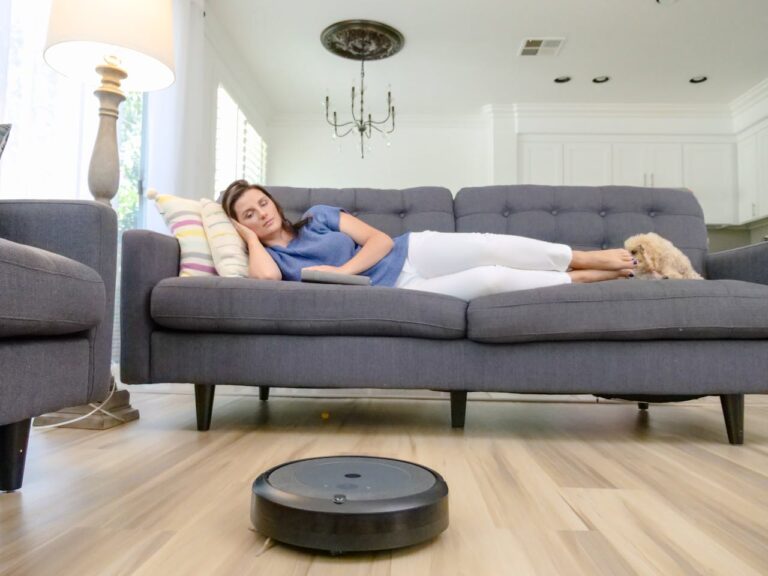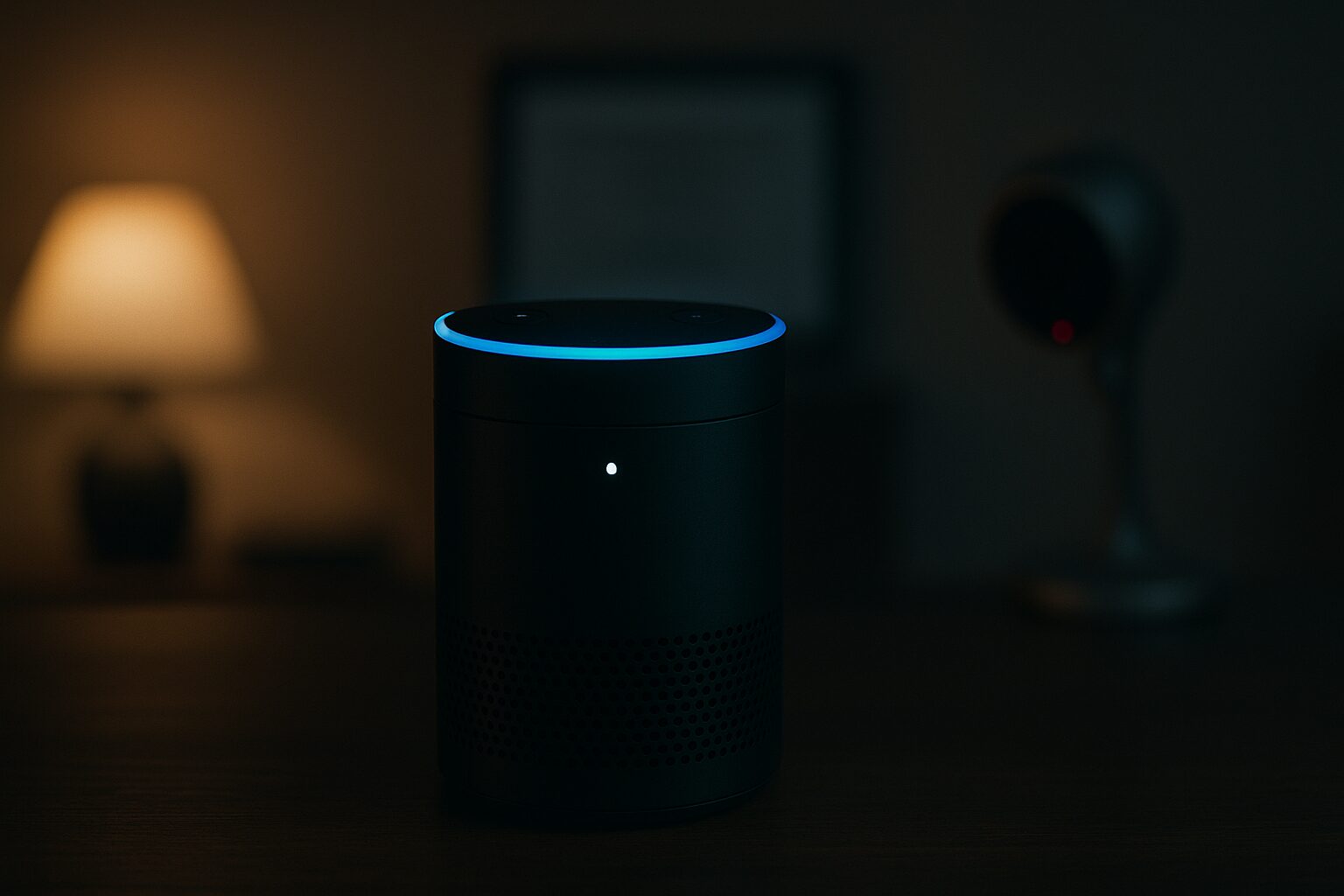There’s something unnerving about a home that pays attention to you. Smart lights that anticipate your movements, thermostats that “learn” your preferences, speakers that answer unprompted, all designed to make life easier. And in many ways, they do. But beneath the surface of all that convenience, something else has started to stir: a subtle kind of discomfort. Not panic. Not paranoia in the dramatic sense. Just a persistent flicker of doubt.
More and more people are starting to ask: Why does this feel a little off?
Maybe it’s the constant notifications, the unpredictable automations, or the creeping sense that we’re not the only ones in charge anymore. Whatever it is, it’s enough to make you pause. And if you’ve felt that pause, if your smart home is making you feel just a little on edge, you’re not imagining things. You’re not alone.
In fact, there’s a growing body of people who are wrestling with the same low-level anxiety that comes from being surrounded by “smart” gadgets that sometimes feel a little too smart. One redditor put it this way: “I’ve avoided smart home stuff because I value my privacy. Am I being paranoid?”
Let’s talk about what’s happening here, not just with our homes, but with our minds.
When Convenience Becomes a Mind Game
The promise of smart homes is rooted in comfort: lights that adjust to your mood, thermostats that learn your routine, fridges that tell you when you’re out of milk. But what no one talks about is the creeping emotional toll of outsourcing so many tiny decisions to machines.
In psychology, we call this “automation fatigue”—the cognitive load that comes from managing systems that are supposed to reduce our workload but often require us to monitor, tweak, and second-guess them. Instead of relaxing, we’re constantly checking notifications, reprogramming routines, and worrying if that blinking light on the hub means something’s wrong or just needs a firmware update.
Studies reveal that while smart tech initially reduces perceived effort, over time it increases anxiety, especially when users feel like they can’t fully control or understand what their devices are doing.
In simpler terms: it’s not that smart homes are inherently bad, it’s that they’re not really neutral either. They change the way we think, behave, and feel inside the one space that’s supposed to feel safest.
Trust Issues in Your Own Living Room
Let’s be honest. It’s hard to fully trust a home assistant that once misheard “play relaxing music” as “order 12 cans of WD-40.”
And it’s not just about malfunctions. There’s a deeper discomfort that comes from not knowing what’s being recorded, who’s accessing it, and how it might be used.
A 2019 Pew Research survey found that 54% of Americans who use smart home device (Smart speaker) worry about their data being collected and sold via their smart hub. Even more telling: nearly a third said they sometimes avoid using features they’ve installed, because they’re not sure who’s listening.
It’s like we’ve invited someone into our homes who’s helpful most of the time, but might also be spying on us, or worse, betraying our private moments in exchange for “user analytics.”
That’s not a setup anyone would feel great about.
You’re Not Paranoid, You’re Paying Attention
One of the most dismissive things people say when you voice concern about your smart home is, “You’re just being paranoid.” But that word—paranoid—is often a shortcut for invalidating instincts that are actually grounded in something real.
Because when we dig into it, that unease many of us feel is not irrational.
It’s your brain noticing the cognitive dissonance of a home that watches you. It’s the tension between comfort and surveillance. It’s the subtle stress of hearing your name spoken by a synthetic voice in an empty room.
And let’s not forget the power dynamics at play here. These devices aren’t neutral tools; they’re products created by companies with agendas. Whether it’s data collection, advertising, or user behavior modeling, there’s almost always more going on under the surface than what we see on the sleek interface.
Feeling uneasy about that doesn’t mean you’re crazy. It means your critical thinking is intact.
The Quiet Burnout of Tech Dependency
Something else is happening too, and it’s sneakier than the usual privacy concerns.
It’s this nagging sense of dependency.
The more integrated our homes become with tech, the more helpless we feel without it. Lose Wi-Fi and suddenly your thermostat, your door lock, your lights, even your vacuum cleaner might stop functioning. And that can leave you feeling strangely disempowered in your own space.
This is where smart home fatigue overlaps with emotional burnout. You’re not just managing a home anymore, you’re managing a network. A system. An ecosystem that requires constant updates, attention, and digital literacy.
For some of us, especially those already juggling work stress, parenting, or mental health struggles, this additional layer of tech maintenance feels like a burden disguised as progress.
And when your home becomes a place where even relaxing involves managing an app or checking a screen, the emotional wear-and-tear starts to show.
Smart, but Not Always Wise
Here’s the thing, I’m not anti-technology. I love a well-lit room that adapts to my mood, or a thermostat that warms the house before I get out of bed. But I also think we need to talk honestly about the emotional tradeoffs.
A smart home can be brilliant in theory, but if it constantly makes you feel on edge, watched, or exhausted, then maybe it’s time to redefine what “smart” really means.
True intelligence isn’t about automation for the sake of it. It’s about design that respects your boundaries, enhances your peace, and works with your life instead of adding friction to it.
What You Can Do (That Doesn’t Involve Throwing Out Your Router)
If you’re feeling overwhelmed or uneasy about your smart home setup, you’re not powerless. Here are a few simple ways to regain a sense of control:
- Audit your devices. Go through everything you’ve connected. Ask: Do I really need this? Does it add value, or stress?
- Disable what you don’t use. If that voice assistant gives you the creeps, mute it. If the smart fridge never actually helps, unplug it. Use tech on your terms.
- Use local control when possible. Choose devices that work without needing constant cloud access. This reduces data exposure and adds stability.
- Review privacy settings regularly. Many platforms have settings that are buried deep, but they’re there. Take the time to limit data sharing and disable unnecessary recordings.
- Talk about it. Share how you’re feeling with friends, online communities, or even a therapist. Sometimes just naming the stress helps dissolve it.
Your Peace of Mind Is Not Optional
There’s a quiet revolution happening, not just in tech, but in how we relate to it. More people are beginning to question the price we pay for convenience, especially when that price includes emotional stress, privacy risks, and the loss of agency in our own homes.
If your smart home makes you feel paranoid, it doesn’t mean you’re wrong. It might just mean you’re noticing something that deserves more attention.
Because at the end of the day, a home should feel like a sanctuary, not a surveillance center.
And if your peace of mind is the tradeoff, then no gadget, no matter how futuristic, is worth it.

